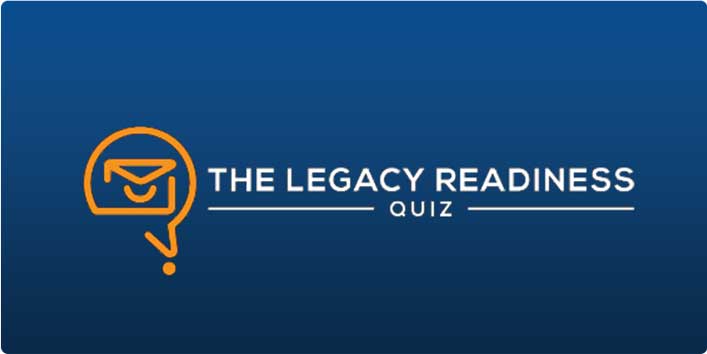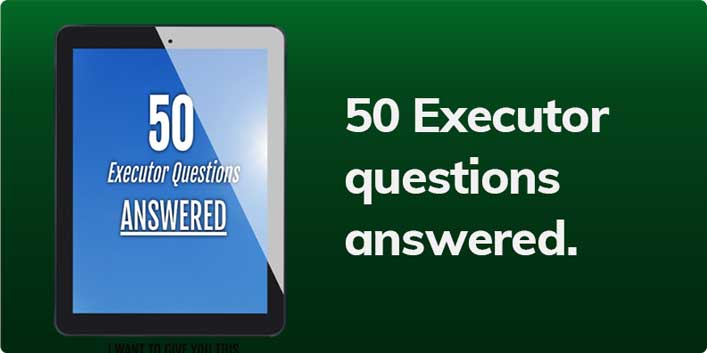- Home
- Estate Planning goals and objectives
- Power of Attorney Vs Executor
Power of Attorney vs Executor - What's the Difference?
Power of Attorney vs Executor to be clear both roles have to do with managing someone's affairs, but they have different responsibilities and functions. Here's an explanation of each:
Power of Attorney (POA): A Power of Attorney is a legal document that grants someone the authority to act on behalf of another person, known as the principal.
The person appointed as the attorney-in-fact or agent can make decisions and carry out tasks outlined in the document.
There are different types of Power of Attorney:
a. General Power of Attorney: Gives broad authority to the agent to make financial and legal decisions on behalf of the principal.
b. Limited Power of Attorney: Grants specific authority for a particular task or a limited period.
c. Durable Power of Attorney: Remains in effect even if the principal becomes incapacitated or mentally incompetent.
How much an agent's authority depends on the terms outlined in the Power of Attorney document.
It all depends on what powers you want to grant. It could mean managing finances, paying bills, making healthcare decisions,
access to your digital assets such as logins and passwords, or conducting real estate transactions, all on your behalf as specified in the document.
Executor:
An executor is an individual or institution named in a person's will to carry out the instructions and administer their estate after their death.
The primary responsibilities of an executor include:
a. Gathering and managing the deceased person's assets.
b. Paying debts, taxes, and expenses from the estate.
c. Distributing the remaining assets to beneficiaries as directed in the will.
d. Filing necessary paperwork with the probate court or other relevant authorities.
While you need an executor when you are dead, you need to prepare them while you are alive.
That is why you need to have conversations with your executor so they understand what your wishes are.
The executor's duties are legally and comes with it a lot of responsibility and time that can take up to 100 hours and on average between 18-24 months to completely settle the estate.

Sarah's Executor, Rebecca
Sarah, a 68-year-old retiree and grandmother passed away after a long battle with cancer. Before her passing, Sarah had diligently prepared her estate and named her niece, Rebecca, as the executor of her will.
Rebecca, a meticulous and organized individual, was honored to take on the role of executor. She understood the importance of handling Sarah's affairs with care and respect.
Upon Sarah's death, Rebecca's responsibilities as the executor included:
Gathering and Managing Assets:
Rebecca reached out to financial institutions, insurance companies, and other relevant parties to identify and locate Sarah's assets, including bank accounts, investments, and retirement accounts.
She obtained copies of Sarah's will and other legal documents, including any trust agreements or beneficiary designations.
Rebecca safeguarded valuable possessions, such as jewelry and artwork, ensuring they were properly accounted for and protected.
Since Rebecca had all of Sarah's logins and passwords she was able to close down online accounts and delete social her media presence.
Settling Debts and Expenses:
Rebecca reviewed Sarah's financial records to identify any outstanding debts, such as mortgages, credit cards, and medical bills.
She worked closely with Sarah's attorney to address any legal obligations and ensure proper distribution of assets.
Rebecca filed the necessary paperwork with the probate court to initiate the probate process, it was necessary in Sarah's case.
Distributing Assets:
As specified in Sarah's will, Rebecca compiled a list of beneficiaries and worked diligently to distribute assets in accordance with Sarah's wishes.
She communicated with beneficiaries, answering their questions and keeping them informed throughout the process with bi-weekly emails.
Rebecca ensured that any specific bequests or special instructions in the will were followed.
Handling Tax Matters:
Rebecca coordinated with Sarah's accountant to handle any legal or tax-related matters associated with the estate.
The prepared and filed Sarah's final income tax return, ensuring compliance with all applicable laws and regulations.
Rebecca obtained any necessary clearances or releases from tax authorities, allowing for the final distribution of assets.
Throughout the executorship process, Rebecca maintained open lines of communication with Sarah's family, keeping them updated on the progress and addressing any concerns they had.
It took close to 3 years for Rebecca to close the estate.
Rebecca approached her role with sensitivity and professionalism with the help of a lawyer, accountant and financial advisor. It had an emotional impact on her life of losing a loved one.
But it did not stop her from making sure Sarah's estate was settled efficiently and in accordance with her wishes, providing peace of mind to Sarah's family during a difficult time.

7 Frequently Asked Questions on Power of Attorney vs Executor
What is the purpose of a Power of Attorney?
A Power of Attorney allows an individual (the principal) to grant someone else (the agent or attorney-in-fact) the authority to make decisions and act on their behalf in financial, legal, or healthcare matters.
Can a Power of Attorney make decisions after the principal's death?
No, a Power of Attorney's authority typically ends upon the death of the principal.
After that, the executor, named in the will, assumes responsibility for managing the deceased person's affairs.
How do I choose the right agent for my Power of Attorney?
When selecting an agent, it's crucial to choose someone you trust, who is reliable, and capable of handling the responsibilities outlined in the Power of Attorney document.
It is advisable to discuss your intentions with the potential agent and ensure they are willing to take on the role.
What is the role of an executor?
An executor is responsible for carrying out the instructions stated in a person's will.
This includes managing the deceased person's estate, settling debts, paying taxes, and distributing assets to beneficiaries according to the terms of the will.
Can I appoint the same person as both my Power of Attorney and executor?
Yes, you can appoint the same person to fulfill both roles if you believe they are capable of managing your affairs while you are alive and administering your estate after your death.
However, it is essential to discuss this with the person and ensure their willingness to take on both responsibilities.
Can a Power of Attorney override a person's decisions?
The agent appointed through a Power of Attorney is legally bound to act in the best interests of the principal and follow their instructions.
However, there may be circumstances where a person's decisions can be challenged if they are deemed to be against their best interests or if there is evidence of fraud, abuse, or misconduct.
What happens if someone becomes incapacitated without a Power of Attorney?
If a person becomes incapacitated and does not have a Power of Attorney in place, it may be necessary for a court to appoint a guardian or conservator to handle their affairs.
This process can be time-consuming, expensive, and may not align with the person's preferences.
- Home
- Estate Planning goals and objectives
- Power of Attorney Vs Executor






